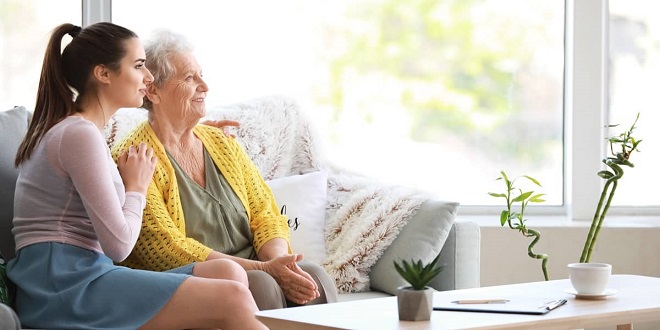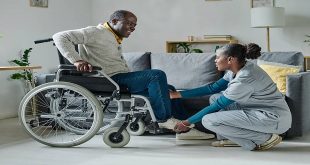Nursing home abuse is a tragic and unfortunate reality. That being said, knowing how to approach your loved one’s living situation in a safe, and knowledgeable manner can help you prevent nursing home abuse. Not only will you be protecting your loved one, but you’ll also be protecting countless other residents in their living facility as well. Your loved one deserves to live a life where they’re respected and given the autonomy they need to feel happy, secure, and safe in their living facility. With all of this in mind, here are four ways you can do your part to prevent dangerous nursing home abuse:
1. Always Listen to What Your Loved One is Saying
Listening to what your family member says about their experience within their nursing home is a must for anyone who wants to protect their elderly loved ones. Don’t chalk up a family member’s mistreatment or threat to old age if you hear about it. Instead, focus on looking into their assertion to ensure that it is false and not a symptom of elder abuse. A family has enough trouble aging without having to cope with the consequences of nursing home abuse. Use these warning signals to ensure the safety of your family. If you feel you cannot handle this task by yourself, ask trusted loved ones to help (and make sure these loved ones are trusted by the suspected elderly neglect victim as well). In some cases, it may be important to bring in an outside emotional and psychological well-being professional. Approaching this situation with care, respect, and open-mindedness is critical in this scenario. Having a nursing home abuse attorney by your side during such an intervention is also highly recommended.
2. Look for Physical Signs of Injuries and/or Abuse
Unfortunately, many people fail to take signs of abuse seriously, even when it’s right in their faces. If you see physical signs of injuries, abuse, or neglect, you need to take action immediately. In the terrible event that older people are physically harmed, there will frequently be a mark. To check if unnecessary restraints are being utilized, one place to look is on the wrists and ankles. Make sure to thoroughly comprehend what occurred whenever a member of your older family breaks a bone to guarantee that no mistreatment, such as pushing or hitting, caused it. Sudden substance abuse can be a massive red flag as well. Spinal injuries and broken hips are some of the most intense and dangerous injuries that can occur during nursing home abuse or neglect. Whenever a serious injury occurs, you should be vigilant about discovering exactly what caused it (and how you can help your loved one post-injury most effectively).
3. Develop a Relationship with Your Loved One’s Primary Caregivers
Many people fail to ask this question when looking into their loved one’s physical and emotional well-being in a nursing home: why shouldn’t we be as eager to scrutinize the primary caregivers for the elderly as we are with our children’s teachers, coaches, and friends? Give them some time to get to know you, learn your name, and develop a rapport. You may be better able to identify potential contradictions and inconsistencies as a result. If you suspect that they are being abusive behind the scenes, this will help you become more vigilant. The majority of the caregivers you will come across are amazing. They tend to be very kind and patient people who commit their lives to assisting others. Because of this, it may occasionally be simpler to identify people who lack compassion and endurance. Despite this, there needs to be compassion given the difficulty of the job and the fact that everyone experiences bad days. Being suspicious is one thing, but being abusive toward a nursing home’s staff is another. Be sure to balance out your desire to protect your loved one, and your duty to give their caretakers respect.
4. Sudden Social Isolation is Always a Bad Sign
When nursing home abuse cases are examined, social isolation is a significant factor. When there are fewer interactions between residents and other residents or family members, they are considerably more prone to be exploited. Those who are isolated are more vulnerable to caretakers who don’t have their best interests in mind and might mistreat or abuse them. Finding the appropriate care facility for your loved one is one of those elements over which you may have control, although dementia and other medical conditions might impact a person’s ability to interact socially. Before making any decisions, make sure to take the social aspect of an assisted living facility into account. Finding the right approach, and treating your loved one with genuine sympathy will help you successfully discover if nursing home abuse is to blame for your loved one’s sudden social isolation.
 BESTCITYTRIPS
BESTCITYTRIPS




